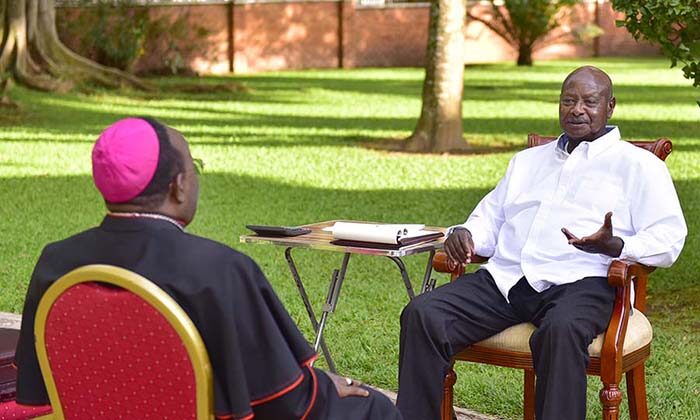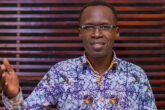
Photo:File/Courtesy
A section of Christian leaders under The Uganda Joint Christian Council (UJCC) are asking government to postpone the forthcoming presidential elections for 3 years.
Uganda’s electoral body last month set January 14, 2021 as the polling date.
In a statement to media on Wednesday, UJCC led by Archbishop of Kampala, Dr Cyprian Kizito Lwanga, said they want the constitution amended to allow incumbent President Yoweri Kaguta Museveni Tibuhaburwa to continue leading during the suggested period of postponement.
The group alleged that politicians have ‘failed’ to promote safe participation in the electoral process by abiding to the COVID-19 prevention measures during campaigns.
This, they urged, has escalated the spread of the pandemic.
They further noted that security officials are brutalizing Ugandans with several deaths arising from high handedness.
Notably, a state-linked news daily, the New Vision publish an opinion poll yesterday asserting that 90% Ugandans are ready to vote on January 14.
In a tweet late November 2020, President Museveni said there will be no need to postpone general elections, since, “We cannot postpone life.”
“Once a problem comes, we have to find a way of dealing with it. Just like we have dealt with AIDS, Ebola, we can deal with Corona as long as people are not reckless and follow the [Standard Operating Procedures.],” he said then.
During the same month (November), when responding to questions about calls for postponing the election, the Electoral Commission boss, Justice Simon Byabakama said:
“The option of postponing the election has not even occurred to us as a commission because it is not in our mandate. The EC is guided by the Constitution Article 61 Clause 2 and unless that is changed by those who are mandated to, we have to comply.”
Reputable sources reveal that lawfully, elections in Uganda can only be postponed, by declaring a State of emergency to give Parliament leeway of the cause or through a referendum.
On their official website, UJCC says it’s mandate is to promote consensus among men, women, youth and children in member churches to uphold Christian values and address issues of economic and social justice through representatives at various levels.

